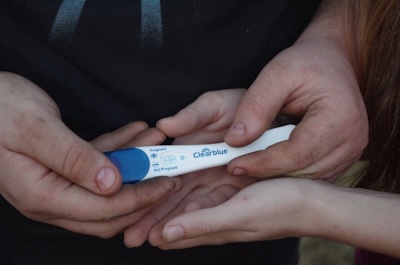In 2016 I got pregnant for the first time. The test popped positive almost immediately. We were elated and terrified. We had only been married a few months, but being a wife and momma was my dream. I had already checked the first box and I was eager to check the second.
At roughly nine weeks pregnant I started bleeding. The little baby inside of me wasn’t growing, I was losing the pregnancy.
We were so excited we had already announced we were expecting. And for a little bit after the ultrasound showed there was no baby, I couldn’t bring myself to fully share we lost the baby. It was an odd limbo.
When we decided we had to share our loss, I found out just how common miscarriage is. I learned how many people I know that have experienced this sort of loss, but I didn’t know they had.
Miscarriage is hard. But no one talks about miscarriage and how to cope which makes it harder. It’s hard to know why the pregnancies don’t survive because it ends so rapidly. And then expecting mother’s are left with empty arms and people around them who have no idea how to provide support because, again, we don’t talk about miscarriage.
I fully believe everything happens for a reason. It may not feel like there’s a good enough reason for a lot of things, but there’s always some reason. Once I got out of the fog and depression I endured following the loss of my first baby I realized we need to talk about the babies who don’t make it earth side, and maybe that’s why I went through it.
An estimated 1 in 4 women experience miscarriage. The number isn’t exact because of the number of pregnancies lost before they are found out about. That’s a lot of women who have felt this pain.
So, what can you do for a friend having a miscarriage?
-Listen to them.
-Talk about the baby, or don’t talk about the baby. Follow the parent’s lead.
-Remind them it’s okay to grieve. Please don’t say it could be worse. You don’t tell someone who loses their adult child it would be worse if they had 40 years with them instead of 20. Mommas do not need to hear that it’s better that they lost the baby at 9 weeks and not 39 weeks. They still lost their baby.
-Bring food, offer a helping hand, childcare, etc. just like you would for any other loss close to the family.
-Share your stories if you relate. Knowing the emotions I was feeling were normal was very helpful for me.
I have three beautiful, healthy children. I wouldn’t trade them for anything in the world. But my baby, my River, will always be my favorite what-if, and I will always wonder who they could have been.






